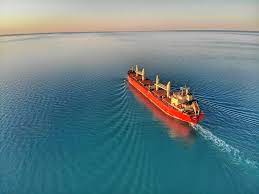Introduction
Maritime courses encompass a vast array of specialized education and training programs that cater to individuals aspiring to forge careers within the maritime industry. From navigating ships across oceans to managing port operations, ensuring maritime safety, and contributing to environmental sustainability, the uses of maritime courses extend far beyond the sea. These courses equip individuals with the skills, knowledge, and expertise required to excel in various maritime-related fields. This article delves into the multifaceted uses of maritime courses, shedding light on how they empower individuals to navigate a sea of opportunities and make significant contributions to a vital global industry.
I. Becoming Proficient Mariners
At the heart of maritime courses lies the goal of producing proficient mariners – individuals who possess the skills and competence to navigate vessels safely and efficiently across the world's oceans. These courses offer comprehensive training in navigation, ship handling, seamanship, and maritime regulations. Mariners who undergo maritime courses are equipped to captain ships, operate intricate navigation systems, and respond effectively to various onboard challenges. Their proficiency ensures the safe passage of cargo, passengers, and vessels, contributing to the reliability and success of maritime transportation.
II. Advancing Maritime Engineering
Maritime engineering courses delve into the intricate mechanisms that power and drive vessels, focusing on propulsion systems, machinery, and equipment maintenance. Graduates of maritime engineering programs play a pivotal role in ensuring the operational efficiency and reliability of ships and maritime infrastructure. Maritime engineers are tasked with designing, maintaining, and repairing propulsion systems, engines, and auxiliary machinery. Their expertise is indispensable for preventing breakdowns, optimizing fuel consumption, and adhering to environmental regulations. Maritime engineering courses contribute to a skilled workforce that drives technological advancements in the maritime sector.
III. Managing Port Operations
Maritime courses extend their reach to the management of port operations, ensuring the smooth and efficient movement of goods and vessels. Port management courses cover topics such as terminal operations, cargo handling, logistics, and port infrastructure. Professionals who complete port management courses are equipped to oversee port activities, manage cargo operations, and optimize port layouts. Their expertise facilitates the seamless flow of goods through ports, enhances supply chain efficiency, and supports global trade networks. Visit if you are looking for Maritime courses near me.
IV. Upholding Maritime Safety and Security
The maritime industry places a high premium on safety and security to prevent accidents, protect crew members, and safeguard vessels. Maritime safety courses address topics like firefighting, emergency response, survival at sea, and safety protocols. Graduates of maritime safety courses play a critical role in ensuring compliance with international maritime safety regulations and standards. They contribute to a culture of safety onboard ships, conduct drills and training exercises, and respond effectively to emergencies, ultimately reducing risks and enhancing the well-being of maritime personnel.
V. Preserving Environmental Sustainability
With growing environmental concerns, maritime courses have evolved to emphasize sustainable practices and environmental protection. Environmental management courses focus on topics such as pollution prevention, marine conservation, and compliance with international environmental regulations. Professionals who undergo environmental sustainability courses contribute to reducing the maritime industry's ecological footprint. They implement measures to minimize pollution, manage waste disposal, and ensure compliance with ballast water management and emission control regulations. Their efforts are instrumental in preserving marine ecosystems for future generations.
VI. Navigating Maritime Law and Regulations
The maritime industry operates within a complex legal framework governed by international conventions and national laws. Maritime law courses provide individuals with insights into maritime legal principles, marine insurance, admiralty law, and contractual agreements. Graduates of maritime law courses become adept at navigating legal challenges related to maritime commerce, accidents, and disputes. They play a vital role in ensuring compliance with maritime regulations, mediating legal conflicts, and upholding the rights and responsibilities of maritime stakeholders.
VII. Fostering Maritime Research and Innovation
Maritime courses contribute to research and innovation that drive advancements in maritime technology, safety, and sustainability. Research-oriented courses explore topics like maritime policy, oceanography, marine biology, and maritime archaeology. Professionals who engage in maritime research contribute to the development of innovative solutions for maritime challenges. Their work leads to the creation of more efficient propulsion systems, improved navigational tools, and strategies for mitigating the environmental impact of maritime activities.
VIII. Supporting Cruise and Hospitality Industry
Maritime courses extend their influence to the cruise and hospitality sector, training professionals to provide exceptional services onboard cruise ships and luxury yachts. Hospitality courses within maritime education cover areas like guest services, culinary arts, event management, and cruise operations. Individuals who complete maritime hospitality courses become well-equipped to offer top-notch guest experiences on cruise ships. Their skills contribute to enhancing passenger satisfaction, managing onboard events, and ensuring the smooth operation of hospitality-related services.
Conclusion
The uses of maritime courses are as diverse and expansive as the open sea itself. These courses equip individuals with the skills, knowledge, and expertise needed to excel in various maritime-related fields, from navigating ships and managing port operations to upholding safety, environmental sustainability, and legal compliance. As the maritime industry continues to evolve and adapt to global challenges, the significance of maritime courses remains unwavering, serving as a compass that guides individuals toward meaningful careers and impactful contributions to a vital global industry. Whether on the high seas, in port operations, or in maritime research, the uses of maritime courses extend far and wide, shaping the present and future of a dynamic and interconnected industry.


No comments yet